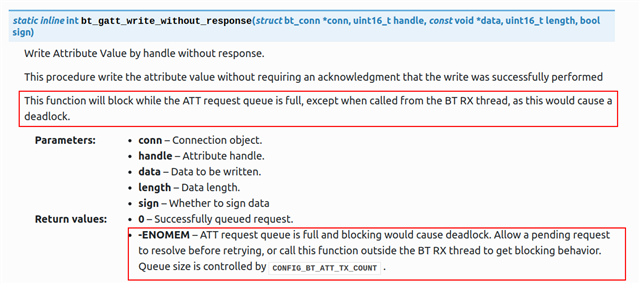Hi,
We are using nRF5340 DK and the nRF Connect SDK Version 2.6.1.
We are experiencing an issue with disconnections. We use bt_conn_ref() when receiving the connected event and bt_conn_unref() when receiving the disconnection event.
However, sometimes after a disconnection, when we retry, we encounter the error: "bt_conn: bt_conn_exists_le: Found valid connection (0x20001a18) with address FF:F5:55:5A:D6:6A (random) in disconnected state".
Why does this issue occur even after the disconnection event has been processed?
If we call bt_conn_unref() twice during the disconnection event as shown in the below code (essentially incrementing once upon connection and decrementing twice upon disconnection), the issue does not occur.
void connected(struct bt_conn *conn, uint8_t conn_err){
bt_conn_ref(conn);
}
void disconnected(struct bt_conn *conn, uint8_t reason){
bt_conn_unref(conn);
bt_conn_unref(conn);
}
Could this behavior be due to an internal counter issue?



